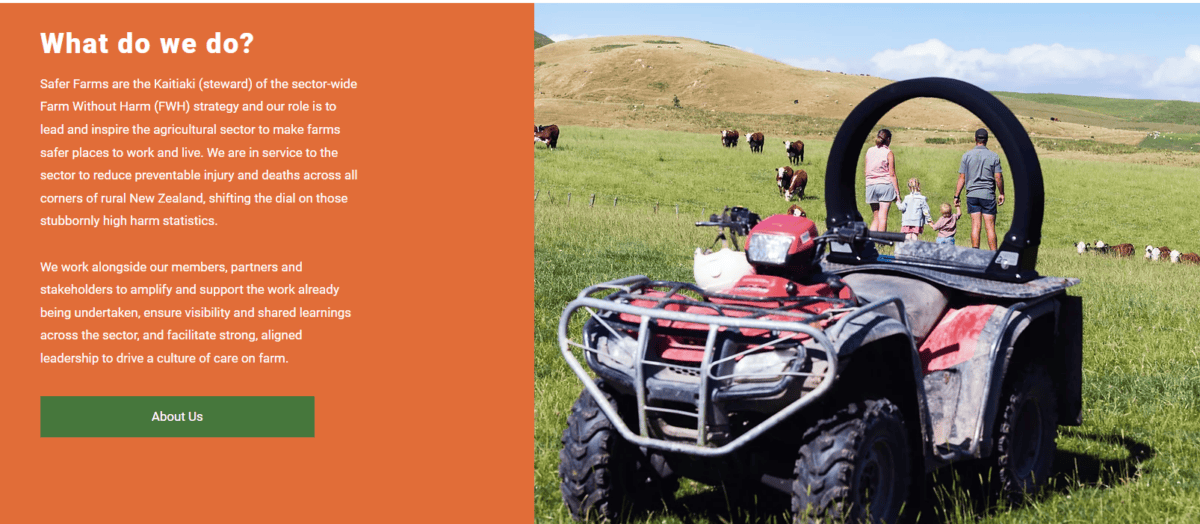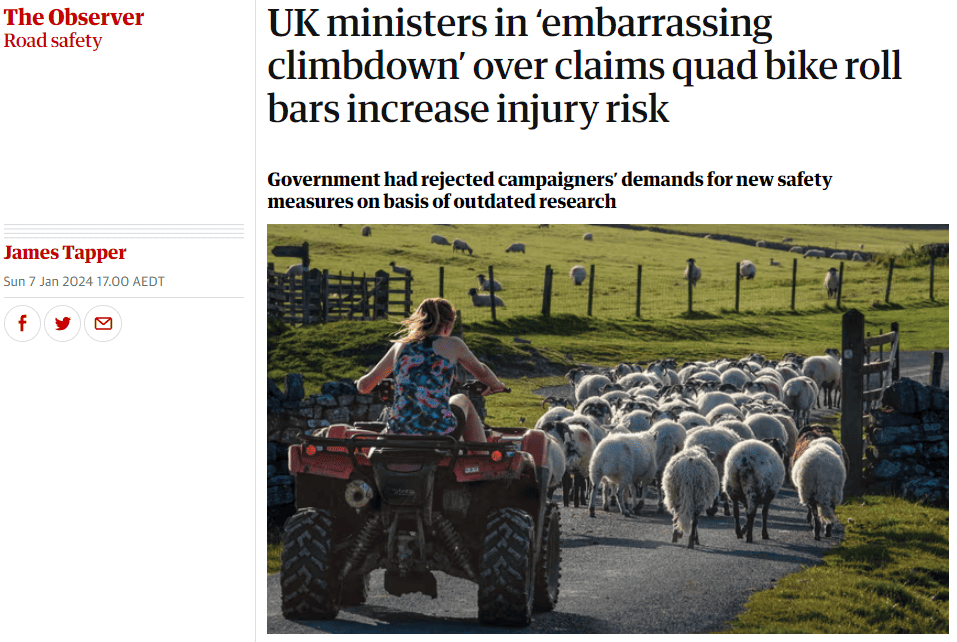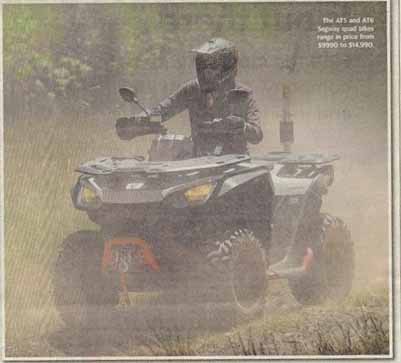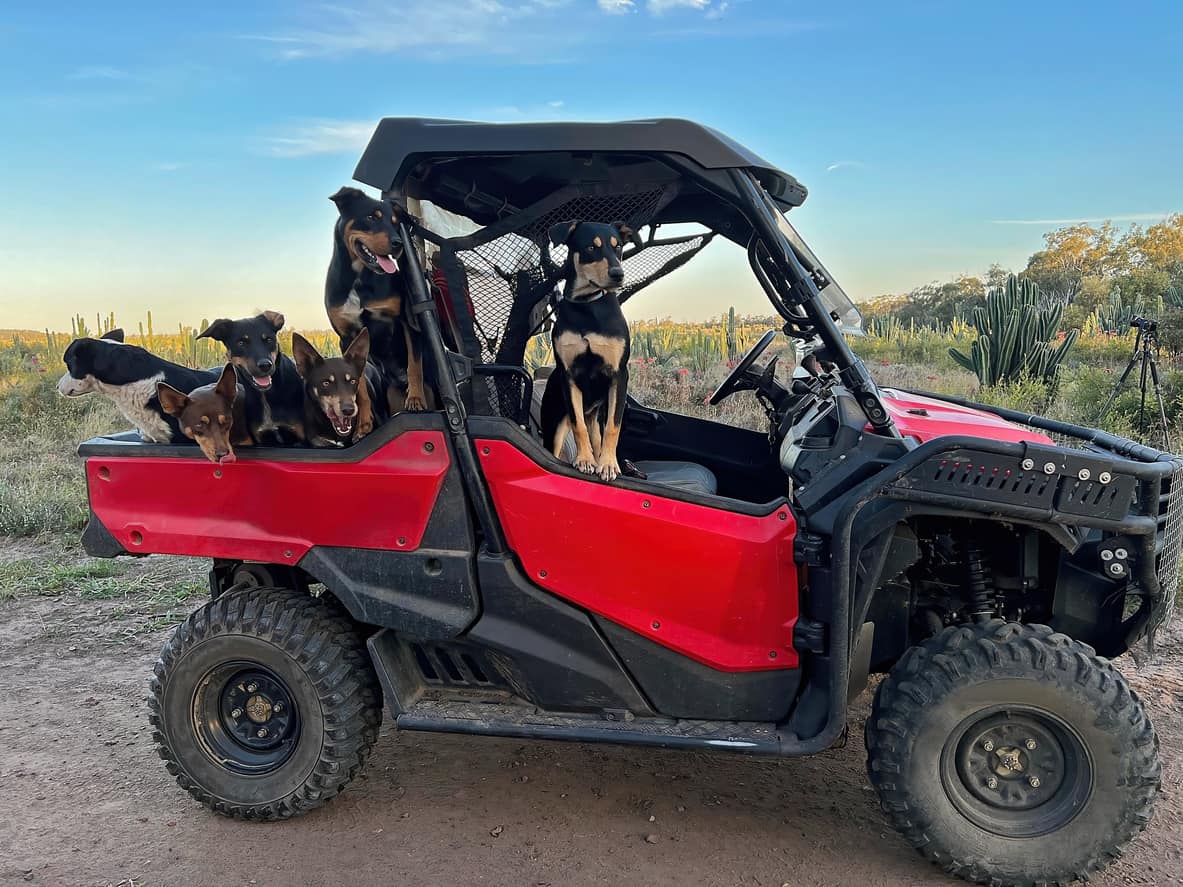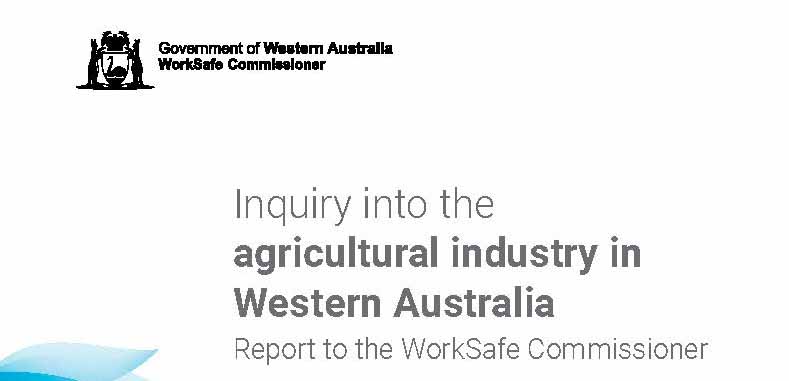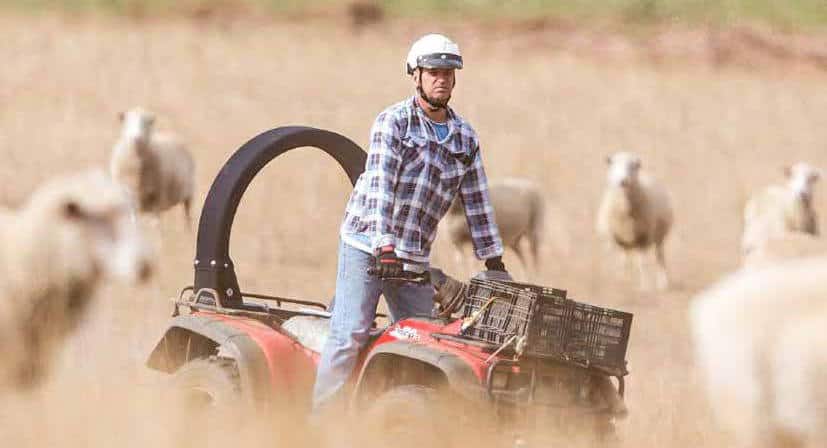Farming is a unique industry with significant occupational health and safety (OHS) challenges; it is unique because it is a blend of rural culture, working at home often with children in the workplace, isolation from social services, self-reliance and independence. It is important for the OHS advice provided and promoted to offer the most effective health and safety advice. Many farming organisations provide this information and do it well. New Zealand’s Safer Farms appears to have good intentions but may have missed the mark with their latest video.
Category: ATV
Work (re)design needs government subsidies to succeed
Last week, SafeWork New South Wales progressed the management of psychosocial hazards at work with the release of its Designing Work to Manage Psychosocial Risks guidance. This document has been a long time coming and offers significant advice on how work and people management needs to change in order to prevent psychosocial hazards. However, its implementation is likely to generate considerable opposition and confusion, or even organisational shock, if it is not able to convince employers of increased profitability and productivity from making the change.
Quad Bike safety? It’s the UK’s turn
A recent article in The Observer illustrates just how far behind Australia the United Kingdom is on requiring the installation of crush protection devices on quad bikes. It is also surprising that the UK’s Health and Safety Executive (HSE) is not just relying on independent Australian research into quad bike rollovers. The vehicles are the same makes and models, the terrain is similar, and the risk is the same …??
The normalisation of quad bike safety
Segway has made a push into the Australian quad bike market, helping to fill the gap left by some vehicle manufacturers who would not accept safety improvements to their quad bikes. Prominent Australian agricultural newspaper, The Weekly Times, reviewed the latest Segway quad bike models. Rider safety was not mentioned specifically in the review, but it was visibly present in the accompanying image and reinforced by Segway’s video media relelase.
No one seems to know why farm deaths have declined
This week’s Weekly Times, a major Australian agriculture newspaper, is reporting the good news that work-related deaths on farms have declined (not available online). The numbers from Safe Work Australia are positive, but the analysis of the reasons for the decline is thin.
The cultural impediments to OHS improvement in agriculture need to be confronted
Recently Western Australia concluded its WorkSafe inquiry into the Agricultural Industry. The recommendations for improvements in occupational health and safety (OHS) are remarkably dull as they largely fit with business as usual. It is much more useful to file this as a reference document which offers some safety insights.
The inquiry was established after a spate of farm deaths (Don’t all OHS inquiries come from disasters!?). Most of the terms of reference relate to the collation of data, which, in itself, is an implied criticism of the past OHS Commissioners and governments (and national leadership).
The inquiry report is an excellent analysis of the cultural relationships between farming and OHS regulation, with some brutally honest findings that other States and OHS professionals should heed.
Engineering controls are possible, and they save lives
The issue of quad bike safety has largely disappeared from the mainstream media. This is largely due to the decline in opposition to installing Crush Protection Devices (CPD) on newly-purchased quad bikes in line with the Australian Competition and Consumer Commission (ACCC) mandated safety standards. On November 24 2022, the ACCC released statistics that showed the success of applying an Engineering Control (the CPDs) favoured by the safety advocates over the Administrative Controls (training, signage and dynamic riding) favoured by the manufacturers and their lobbyists.
The quad bike safety saga in Australia, in particular, is a textbook study of farm politics, globalisation, belligerence, the ownership of evidence, the macho culture of independence, manipulation of consumers, ineffective politics, ineffective occupational health and safety (OHS) arguments, the power of money and more. (There’s an important book challenge to anyone who has the time and the resources)

